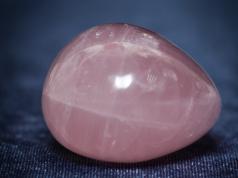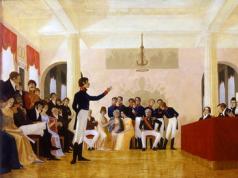
- Present Perfect - это действие, которое завершилось к моменту речи и его результат имеет значение в настоящий момент.
I have cooked dinner. Let"s eat.
Могут использоваться указатели времени:
today сегодня
this week/month/year на этой неделе/в этом месяце/году
this morning/afternoon/evening этим утром/днём/вечером

2. С наречиями, у которых размыты рамки времени и частотности.
I have just heard something. Have you?
Могут употребляться наречия:
lately недавно
just только что
by now к этому времени
up to now до сих пор

3. Present Perfect употребляется вместо Present Perfect Continuous (настоящего совершённо-длительного) с глаголами, которые не употребляются в длительной форме.
Colin has always needed somebody"s countenance. Колин всегда нуждался в моральной поддержке от кого-нибудь.

4. Переводится прошедшим временем, но иногда для выражения действия, которое началось в прошлом и продолжается в момент речи, переводится на русский язык настоящим временем:
а) указано начало действия since ;
б) указан весь период времени for two days, for ten minutes.
I have known him for ten years. I have known him since 1990.

CONTINUOUS


Время указывает на действие, которое началось в прошлом, продолжалось в течение некоторого времени и либо закончилось непосредственно перед разговором или все еще продолжается в момент разговора.
I have been waiting here for 2 hours!
Я прождал здесь два часа!
We have been preparing for our exam since morning.
Мы готовились к экзамену с самого утра.

Употребляется также для выражения действия, которое продолжалось в течение определенного периода времени, но закончилось непосредственно перед моментом речи и связано с настоящим временем своим результатом. Период времени, в течение которого совершалось действие, может быть указан, так и не указан. В этих случаях Present Perfect Continuous переводится на русский язык прошедшим временем глагола несовершенного вида:

She"s been crying. (Her eyes are red). - Она (долго) плакала. (У нее красные глаза.)
Look! It has been snowing. (The ground is all white). - Смотри! Снег идет (уже давно). (Вся земля - белая.)

Present Perfect & Present PerfectContinuous
just, ever, never, already, yet (negations & questions), always, how long, so
far, recently, since (= from a starting point in the past), for (= over a period
of time) , today, this week/month , etc.
I For and since are usually used with Present Perfect Continu~s to emphasise the duration of an action

Образование
Утвердительные предложения :
I have been playing We have been playing
You have been playing You have been playing
He / she / it has been playing They have been playing
Вопросительные предложения:
Have I been playing? Have we been playing?
Have you been playing? Have you been playing?
Has he / she / it been playing? Have they been playing?
Отрицательные предложения :
I have not been playi ng We have not been playing
You have not been playing You have not been playing
He / she / it has not been play ing They have not been playing
Present Perfect. A story about me.“I’ve already done a lot of things today.
I’ve washed my hair and now it’s clean.
I’ve cleaned my teeth and I’ve had breakfast, so I’m not
hungry now.
This week my husband has bought me a new sweater.
Look, isn’t it nice?”
Answers:
Compare with a partner.
Usage
So, when do we use Present Perfect?past
now
future
We use Present Perfect when
something happened or started happening in the past
and we can see the result in the present.
Form
How do we form Present Perfect?+
?
have/has + V3 (Ved)
haven’t/hasn’t + V3 (Ved)
Have/Has ____ + V3 (Ved)?
Yes, I have.
No, he hasn’t.
Markers
What markers do we use with Present Perfect?сегодня
today
на этой неделе (в этом месяце, году) this week (month, year)
недавно
recently (=lately)
for
на протяжении
since
c какого-то момента
когда-либо
ever
никогда
never
уже
already
yet
уже, еще
just
только что
Underline a marker in each sentence.
1.2.
3.
4.
5.
6.
I’ve done many things today.
My best friend has gone on holiday this year.
My mother and I have been abroad recently.
I’ve worked as a teacher for 5 years.
She’s worked as a teacher since 2010.
– Have you ever been to France?
– I’ve never been to France.
6. My colleague has already done an important task.
7. My another colleague hasn’t done his task yet.
8. Has the director given the instructions yet?
9. My parents have just returned from a business trip.
Compare with a partner. Answers:
Work individually.
Tick (V) the sentences in the previous slide thatare true for you.
Cross (X) the sentences that are false for you
and correct them.
Feedback
Language feedback
Work individually.
Write 5 questions of different types to yourpartner about what he/she or his/her family
have already done.
Use different markers.
Answer: Present Perfect
Work in pairs.
of the answers.
Then tell the class 2 most interesting things
Feedback
Language feedback
Present Perfect Continuous. A story about me.
“I have been working as a teacher of English for 5 years.I have been working as a teacher of English since 2010.
My sister and I have been living in Minsk for all our life.
My sister has been studying at university for almost 5
years.
My husband has been living in Minsk since he came here
from Mogilev in 2008.”
Answers:
Underline a verb in each sentence.
Compare with a partner.
Usage
So, when do we use Present Perfect Continuous?past
now
future
Pr.Perfect Cont.
We use Present Perfect Continuous when
an action began in the past, has been going on up to the
present and is still going on.
Process is more important that result.
Form
How do we form Present Perfect Continuous?+ have/has + been + V
- haven’t/hasn’t + been + V
Have/Has ____ been + V ?
?
ing
ing
ing
Yes, I have.
No, he hasn’t.
Markers
What markers do we use with Present PerfectContinuous?
на протяжении
for
c какого-то момента
since
Work individually.
Tick (V) the sentences that are true for you.Cross (X) the sentences that are false for you and
correct them.
1.
2.
3.
I’ve been working as a programmer since I graduated from
university.
I’ve been living in Minsk all my life.
My best friend has been working as a programmer for some
years too.
Compare with a partner. Find the things that you have in common.
FeedbackLanguage feedback
Work individually.
Write 2 questions (1 general + 1 special) to yourpartner about what he/she or his/her
family/friends have been doing.
What grammar tense will you use?
Answer: Present Perfect Continuous
Work in pairs.
Ask your partner the questions and take notesof the answers.
Then tell the class 1 most interesting thing
about your partner or his/her family/friends.
Feedback
Language feedback
At home.
Write a story about you and your family usingPr. Perfect and Pr. Perfect Cont.
(min 10 sentences, positive and negative)

Present Perfect Continuous: описание длительного действия, которое началось в прошлом и все еще продолжается или только что закончилось.
На русский язык в большинстве случаев переводится глаголом в настоящем времени.

Образование:

We have been learning English for six month.
Мы учим английский шесть месяцев.
How long has Ann been waiting for?
Сколько времени ждет Анна?

- For – в течение
- Since – с, с тех пор как
- All day (all my life,...) – весь день (всю жизнь, ...)
- Recently - недавно
- Lately – в последнее время
- For a long time - долго



- I (to look) for my book for an hour.
- They (to quarrel) for such a long time.
- How long they (to practice) today?
- It’s (to rain) all day.
- He (not/to feel) well lately.
- She (to live) here since childhood.
- We (to drive) for about two hours.

Исправь ошибки:
- We to have been learning Spanish for six days.
- Peter have been running the company for ten years.
- You’ve making good progress in your English lately.
- I’ve been have a lot of trouble with this equipment.
- We has make some changes in the project.
- They has been trying to settle the matter by ourselves.
- Mary have to look for some exhibition grounds since last month.
- Have been John using your car?

Vera did athletics last year.
Vera has been doing athletics since last year.
- My sister used this shampoo two years ago.
- He often skipped breakfast when he was a student.
- My aunt ate much chocolate in her childhood.
- Nick cleaned his teeth with a new toothpaste yesterday.
- I prepared for the English exam last week.
- They went to the swimming pool last month.

Раскрой скобки, используя Present Perfect Progressive:
1. My grandfather (to work) in the garden since he retired. 2. I (to use) this cream since I discovered it. 3. She (to sell) fruit and vegetables for five years. 4. The factory (to produce) these trainers for two years. 5. My mum (to eat) low-calorie foods for six months. 6. My sister (to do) aerobics since last year. 7. I (not to eat) a fried meal since I began to follow a diet. 8. Mary (to use) this toothpaste for a long time. 9. His grandmother (not to smoke) since he visited his heart doctor. 10. She (not to drink) strong tea for many years.
Cлайд 1
Cлайд 2
 To talk about an action which has happened over a period of time. To talk about an action which has recently finished and has a result in the present. To talk about an action which is still happening, or has recently finished. There are 3 uses of the present perfect continuous:
To talk about an action which has happened over a period of time. To talk about an action which has recently finished and has a result in the present. To talk about an action which is still happening, or has recently finished. There are 3 uses of the present perfect continuous:
Cлайд 3
 In pairs, ask and answer questions about what you have been doing in the last two weeks. Use these ideas to help you: go to the gym play a sport study for exam look after younger brother/sister earn money We use the present perfect continuous to talk about an action which has happened over a period of time
In pairs, ask and answer questions about what you have been doing in the last two weeks. Use these ideas to help you: go to the gym play a sport study for exam look after younger brother/sister earn money We use the present perfect continuous to talk about an action which has happened over a period of time
Cлайд 4
 Work with a partner. Take turns to guess what led to the situations in the pictures. Think of as many possibilities as you can. Use the present perfect continuous. We use the present perfect continuous to talk about an action which has recently finished and has a result in the present
Work with a partner. Take turns to guess what led to the situations in the pictures. Think of as many possibilities as you can. Use the present perfect continuous. We use the present perfect continuous to talk about an action which has recently finished and has a result in the present
Cлайд 5
 We use for and since to talk about the length of the action. Complete using for and since: We use (1)____to say when an action started and (2)____to say how long the action took. We use the present perfect continuous to talk about an action which is still happening,or has recently finished
We use for and since to talk about the length of the action. Complete using for and since: We use (1)____to say when an action started and (2)____to say how long the action took. We use the present perfect continuous to talk about an action which is still happening,or has recently finished
Cлайд 6
 I / study / first aid (for / since) last year. One student / not feel / well (for / since) a few days. I / try / to ring my parents (for / since) ages. What / you / do / in the library (for / since) so long. We / learn / how to climb (for / since) 1st August. I / wonder / what job to do (for / since) a long time. Write sentences using for and since and the verb in the present perfect continuous form.
I / study / first aid (for / since) last year. One student / not feel / well (for / since) a few days. I / try / to ring my parents (for / since) ages. What / you / do / in the library (for / since) so long. We / learn / how to climb (for / since) 1st August. I / wonder / what job to do (for / since) a long time. Write sentences using for and since and the verb in the present perfect continuous form.
Cлайд 7

Cлайд 8
 The present perfect continuous makes the action important, and says how long it’s been continuing. The present perfect simple makes the result important, and says how many times something has happened. The present perfect continuous or the present perfect simple? REMEMBER!
The present perfect continuous makes the action important, and says how long it’s been continuing. The present perfect simple makes the result important, and says how many times something has happened. The present perfect continuous or the present perfect simple? REMEMBER!
Cлайд 9
 We’ve been writing letter. We’ve written ten letters today. I’ve been going to the theatre recently. I’ve been to the theatre three times. Compare these pairs of sentences. Is the action or the result important?
We’ve been writing letter. We’ve written ten letters today. I’ve been going to the theatre recently. I’ve been to the theatre three times. Compare these pairs of sentences. Is the action or the result important?
Cлайд 10
 Steven Spielberg has directed/has been directing over twenty films. 2. He has worked/has been working on a new since February. 3. Oxford University Press has published/ has been publishing thousands of books. 4. They have published/ have been publishing for hundreds of years. 5. Madonna has recorded/ has been recording albums for more than two decades. 6. She has recorded/ has been recording at least ten hit records. Choose the correct form of the verbs to complete these sentences
Steven Spielberg has directed/has been directing over twenty films. 2. He has worked/has been working on a new since February. 3. Oxford University Press has published/ has been publishing thousands of books. 4. They have published/ have been publishing for hundreds of years. 5. Madonna has recorded/ has been recording albums for more than two decades. 6. She has recorded/ has been recording at least ten hit records. Choose the correct form of the verbs to complete these sentences
Cлайд 11
 study for a test learn about someone or something interesting practice something work on a special project Write a short paragraph about what you’ve been doing at school in the last few weeks. Use these ideas to help you.
study for a test learn about someone or something interesting practice something work on a special project Write a short paragraph about what you’ve been doing at school in the last few weeks. Use these ideas to help you.








